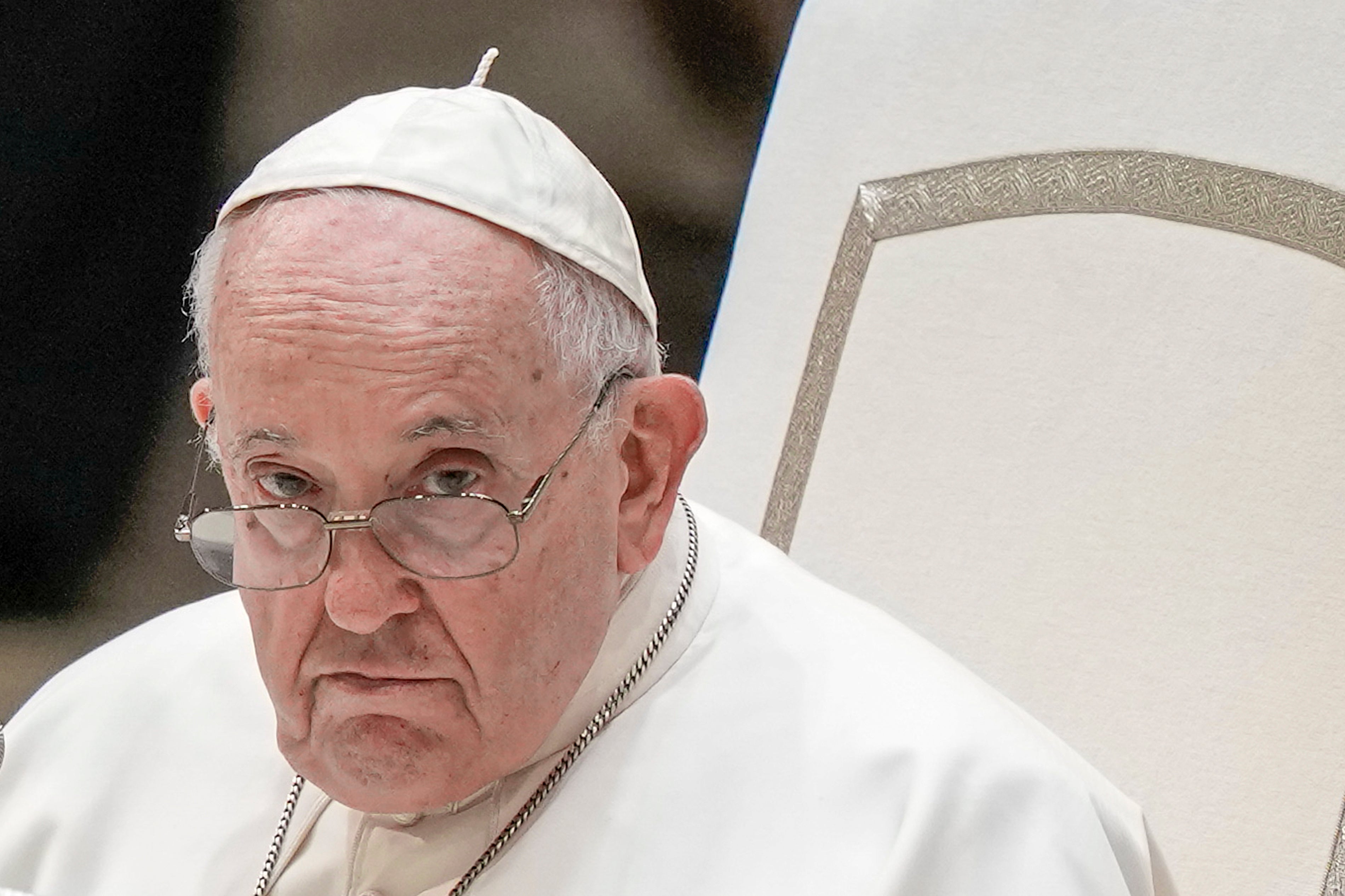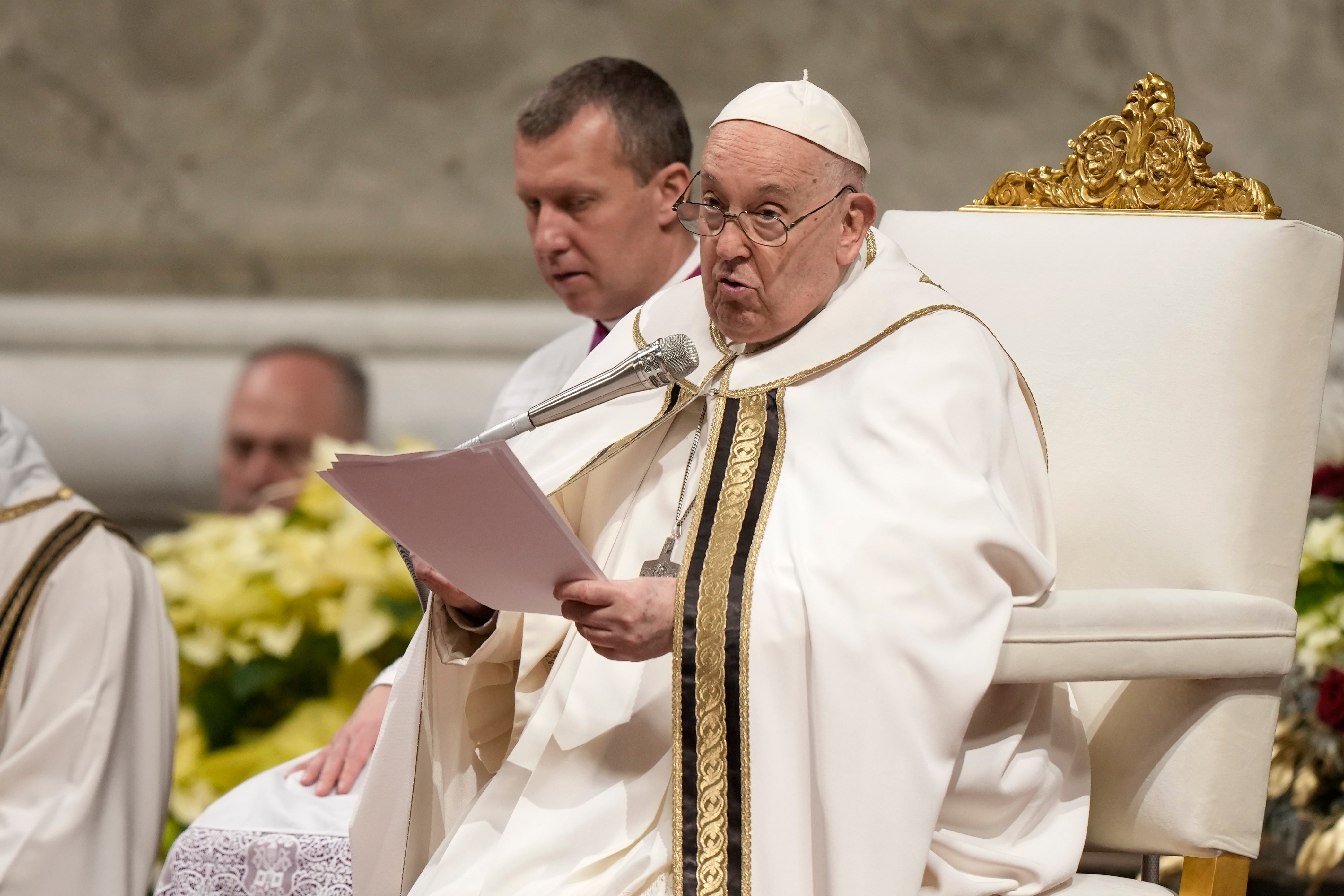Pope’s new doctrine chief in hot water over unearthed orgasm book
‘The Mystical Passion’ published in Mexico in 1998, is a short expose about mystical-sensual experiences with God
Your support helps us to tell the story
From reproductive rights to climate change to Big Tech, The Independent is on the ground when the story is developing. Whether it's investigating the financials of Elon Musk's pro-Trump PAC or producing our latest documentary, 'The A Word', which shines a light on the American women fighting for reproductive rights, we know how important it is to parse out the facts from the messaging.
At such a critical moment in US history, we need reporters on the ground. Your donation allows us to keep sending journalists to speak to both sides of the story.
The Independent is trusted by Americans across the entire political spectrum. And unlike many other quality news outlets, we choose not to lock Americans out of our reporting and analysis with paywalls. We believe quality journalism should be available to everyone, paid for by those who can afford it.
Your support makes all the difference.The Vatican’s new doctrine chief is raising eyebrows over a book he wrote as a young priest describing orgasms in graphic terms.
The out-of-print, Spanish-language book penned by now-Cardinal Victor Manuel Fernandez, entitled “The Mystical Passion: Spirituality and Sensuality,” is similar in tone to another Fernandez book that sparked scandal soon after he was appointed, “Heal Me With Your Mouth. The Art of Kissing.”
Neither title was included in the list of publications the Vatican provided when Pope Francis named Fernandez as prefect of the Vatican’s Dicastery for the Doctrine of the Faith and gave him marching orders to radically change the office’s course.

The Argentine theologian had been known as Francis’ theological ghostwriter and has already shaken up the Catholic Church with a flurry of official decrees on issues such as allowing transgender people to serve as godparents.
“The Mystical Passion,” published in Mexico in 1998, is a short expose about mystical-sensual experiences with God.
In its final chapters, Fernandez delves into orgasms, including graphic descriptions of male and female sexual anatomy and his commentary about sexual desire, pornography, sexual satisfaction and domination, and the role of pleasure in God’s mystical plan.
Its explicitness suggests at least familiarity with sex and orgasm that would seem uncommon for a celibate priest.
At one point, describing the female orgasm, he concluded that women are “often insatiable” and “may crave more,” purportedly because of ample blood flow during a climax.
Fernandez has refused several requests for comment from The Associated Press, and didn’t respond when asked Monday for clarification about “The Mystical Passion.” In comments to some Catholic media, he said he wrote the book when he was a young priest, would never write such a thing now and had ordered its publication halted soon after it first came out after he realized it could be misunderstood.
In comments to Crux, an online Catholic website, Fernandez said he had written “The Mystical Passion” after having conversations with young couples who wanted to better understand their relationships. It was a similar comment he gave in explaining why he wrote “Heal Me With Your Mouth.”
“The Mystical Passion,” which was unearthed by traditionalist Catholic blogs in Italy and Argentina, “Messa in Latino” and “Caminante Wanderer,” respectively, resurfaced Monday as conservative and traditionalist Catholics have heightened their criticism of Fernandez following the publication of a declaration from his office approving blessings for same-sex couples.

The declaration, which was approved by Francis on Dec. 18 and published a day later, sparked a remarkable backlash among bishops around the world, with some national bishops conferences in Africa, Poland and elsewhere flatly saying they wouldn’t implement it.
The pushback prompted Fernandez to issue an explanatory note last Thursday insisting that the declaration wasn’t heretical but acknowledging that its provisions may not be applicable at least immediately in parts of the world. He allowed that further “pastoral reflection” may be necessary.
While LGBTQ+ Catholics have hailed Fernandez’s openness to making the Catholic Church a more welcoming place, conservatives have been vocal in their outrage.
Guinean Cardinal Robert Sarah, the retired head of the Vatican’s liturgy office, was the latest high-ranking prelate to denounce the declaration known as Fiducia Supplicans, saying it was the work of the devil and insisting on previous church teaching declaring homosexual acts to be “intrinsically disordered.”
Sarah praised those bishops conferences in Africa that have rejected the declaration and said he joined in their ranks.
“In doing so, we are not opposing Pope Francis, but we are firmly and radically opposing a heresy that seriously undermines the church, the body of Christ, because it is contrary to the Catholic faith and tradition,” he wrote in an essay published by Vatican columnist Sandro Magister.
To date, the reaction to “The Mystical Passion” has been fiercest among traditionalist and conservative Catholic commentators on social media. Coupled with recent comments from one of the Vatican’s most respected canon lawyers, Archbishop Charles Scicluna, saying the church should open discussion on allowing priests to marry, many on the Catholic right sense the ground is shifting.
The Wanderer, a conservative Catholic newspaper in the United States, said the revelations about Fernandez’s book were cause for alarm and confirmed the direction of Francis’ 10-year pontificate.
“If this is not grounds for immediate removal of Cardinal Fernandez from his post at the Doctrine of the Faith and the repeal of the the document Fiducia Supplicans — this pontificate along with our church will be heading further into the abyss,” wrote Joseph Matt, the newspaper president, in an online editorial.
The Vatican spokesman, Matteo Bruni, didn’t respond when asked if Francis still had confidence in Fernandez to lead the doctrine office, whether he knew about “The Mystical Passion” and why it wasn’t included in the list of publications provided by the Vatican when Fernandez was appointed on July 1.
